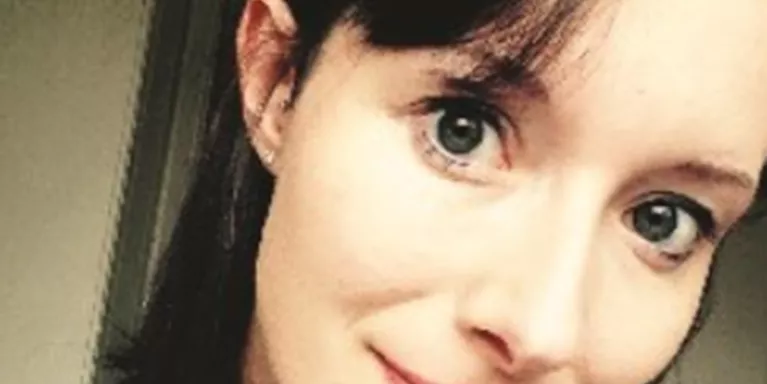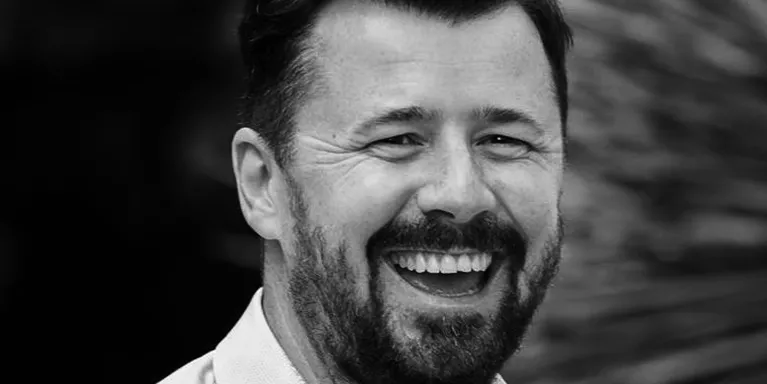How my sleep pattern highlighted my failing mental health
Rhiannon blogs about how she had taken her good night's sleep for granted till she became unwell with depression and PTSD.
Sudden, unexpected mental illness taught me the importance of sleep in the harshest way possible.
Did you know that a change in sleeping habits – whether insomnia or the need to sleep much more – can be a red flag that you are struggling with your mental health? If so, that’s great to hear. If not, you’re just like I used to be.
Until I fell ill with severe depression and PTSD, I had always taken sleep for granted. I was a ‘head hit the pillow, deep sleep for eight hours, battery fully charged, up and ready to go’ kind of person. My husband, a night owl who takes ages to fall asleep, was both intrigued and exasperated about my ability to sleep anywhere, as long as I was comfortable, and then to be full of energy once I had slept for those eight hours.
"My sleep was the first red flag that started waving wildly to warn me that something was wrong."
It took falling sick to make me realise how fortunate I was. Life was hectic. I was teaching full-time as well as looking after ten year old twins. Passionate about my own job, I gave it one hundred per cent of my energy. Passionate about my family, I gave them one hundred per cent of my energy too. Yup, you’re right. The maths doesn’t add up and those percentages don’t include energy for myself either.
That was fine while things were fine. But once they weren’t, well it was no longer fine.
I experienced a significant trauma. A trauma I might have handled if I had had some energy left for me. The point is, is that my sleep was the first red flag that started waving wildly to warn me that something was wrong, yet, disastrously, I ignored it.
My problems began with nightmares as soon as I fell into a deep sleep. Continuous, painful, terrorizing nightmares that took me back to memories I had long tried to forget. Pretty soon, in order to avoid those nightmares, I began to avoid going to sleep. Wide awake, my fear of dreaming would buzz around my head for hours until eventually, against my will, I would fall into a deep slumber. More nightmares. More pain. And exhaustion, inevitably, set in.
Within a couple of weeks of this, I began to struggle with my daily life. I started to lose weight and to get confused about simple things that had never been a problem.
My daughters still laugh when we go around a roundabout near home as they remember the day I took the wrong exit and couldn’t work out why I couldn’t find our road. I let them laugh. I’m glad they can remember a difficult time in a positive light. But I shudder when they remind me of it. I genuinely couldn’t work out how to get home and we were two hundred metres from a house we’d lived in for three years. I know now that lack of sleep was a major factor in my confusion levels.
My nightmares continued and caused such an adrenalin surge in my body that, as soon as I woke up, I went on a cross-trainer in our living room to burn it all off. I still hadn’t really recognized how sick I was and that those levels of adrenalin showed how much my nightmares were affecting me. I just knew that without working-out, I couldn’t cope with the long days that stretched before me.
"During one particularly bad nightmare, I leapt out of bed, dashed across the room and collided with a large wardrobe."
Before long I was seeing a therapist and had been signed off work. A turning point in accepting how much I needed help, and how much I needed to resolve my night terrors, has stuck in all of our minds ever since. During one particularly bad nightmare, I leapt out of bed, dashed across the room and collided with a large wardrobe. It shook violently, waking up my husband, daughters and myself, frightening us all. The following day, sporting a large bruise on my face, I discussed medication to help me sleep with my doctor. Unfortunately, it didn’t help. Although I fell asleep more easily, it ‘trapped’ me in my nightmares, prolonging them as I didn’t wake up like I usually did.
I gave up taking them almost immediately. My husband and I swapped sides of the bed so he could be closer to the door. Every night we blocked access to the stairs to ensure I didn’t fall down them and, on nights when my dreams were especially bad, my husband would lock our bedroom door and put the key out of my reach.
There was no turning point that I can remember when I started to sleep properly again. That seems strange to me now as sleeping badly was such an issue. Gradually, with therapy, support from my friends and family, as well as lots of daytime naps (I never dreamt in the day), I began to feel better.
"I have learnt some important lessons. Self-care is vital. And sleep is a fundamental part of self-care."
Two years on, I have recovered fully. I am working full-time and back to much of the busyness of my previous life. But I have learnt some important lessons. Self-care is vital. And sleep is a fundamental part of self-care. I make sure I don’t forget that with the acronym SETA. Seta means silk in Italian. Silk is soft, smooth and comforting, right? Well, when I’m feeling overwhelmed, I just ask myself if I’ve had enough SETA. It stands for Sleep, Exercise and Time Alone. Those are the three elements that I know are crucial for my mental health.
We are all different and we have different self-care needs. Can you think of an acronym that would help you remember what’s vital for you? Just remember that an S can go at the end of all nouns – include sleep because it is so important for us all. As I learnt. The hard way.
I truly believe that had I been more aware that lack of sleep could have such a detrimental effect on me, I would have faced my issues sooner. As it was, I ignored them for too long and, consequently, my recovery took far longer than it needed to.


Information and support
When you’re living with a mental health problem, or supporting someone who is, having access to the right information - about a condition, treatment options, or practical issues - is vital. Visit our information pages to find out more.
Share your story with others
Blogs and stories can show that people with mental health problems are cared about, understood and listened to. We can use it to challenge the status quo and change attitudes.

















